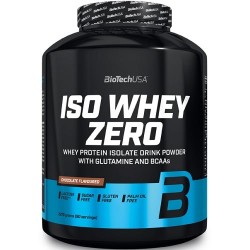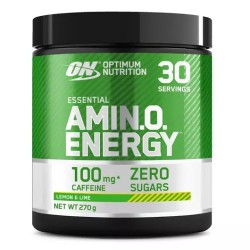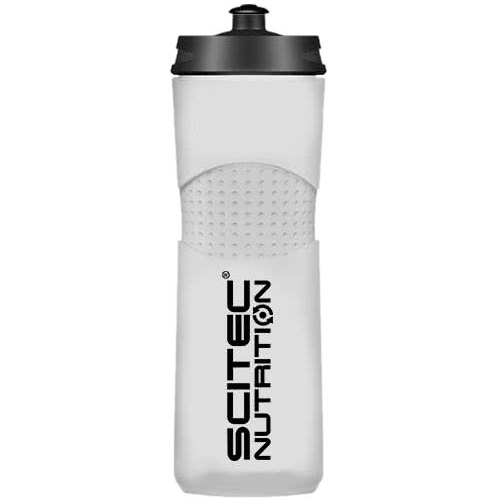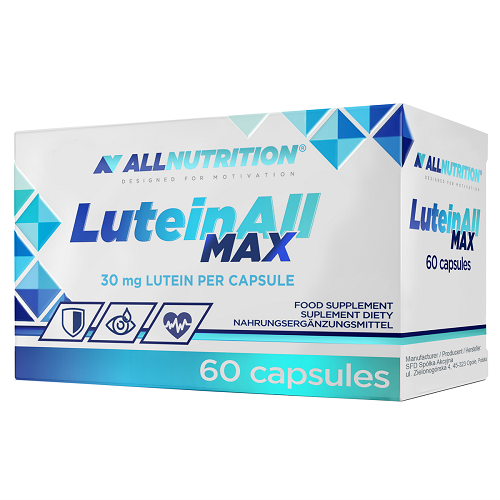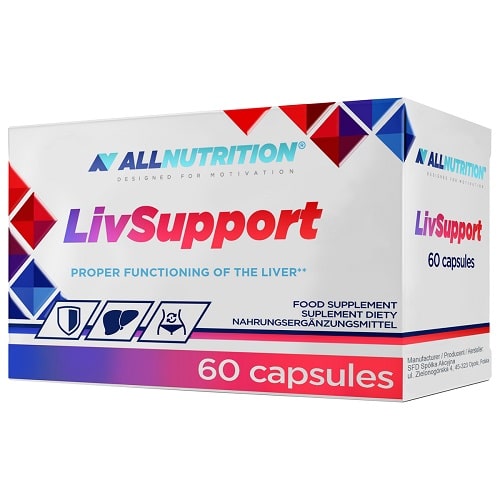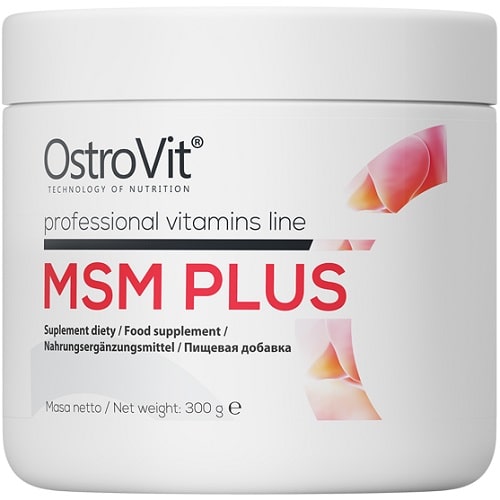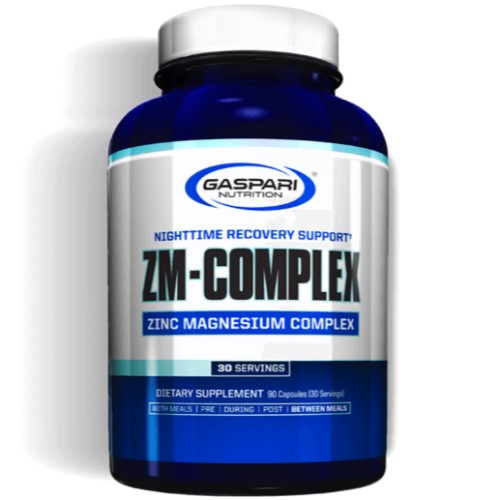Scitec Nutrition Ashwagandha - 60 caps
Scitec Nutrition Ashwagandha - 60 caps
This herbal ingredient have been used by mankind for a long time, for various purposes, and can be considered part of folk traditions. The importance of extracts lies in the fact that they do not focus on the whole plant, but on the extraction of its biologically active components, its concentrated active ingredients, separated from the plant fibres. To do this, different technological solutions can be used, a process called extraction. The product is named after Withania somnifera, better known as Ashwagandha, but also known as Indian ginseng. It is a long-established plant in Ayurveda, and its active ingredient, lactones, can be used for a variety of purposes.
The history of Ashwagandha’s use in traditional Indian medicine spans nearly 3,000 years. Its root has been utilized as an aphrodisiac, narcotic, tonic, diuretic, anthelmintic, and stimulant. While native to India, Ashwagandha is also cultivated in regions such as the Mediterranean, the Himalayas, Africa, the Canary Islands, the Cape of Good Hope, and Australia.
Recently, there has been increasing interest in the potential health benefits of Ashwagandha, particularly regarding stress management, cognitive function, and physical performance. Studies suggest that Ashwagandha supplementation, like Scitec Nutrition Ashwagandha, may offer neuroprotective benefits, support obsessive-compulsive disorder treatment, and possess anti-inflammatory, immunomodulatory, and antibacterial properties. Additionally, it may aid in infertility, anticancer treatments, and diabetes management, while also potentially offering cardioprotective effects, improving sleep, enhancing stress resilience, reducing anxiety, and supporting hypothyroidism and muscle strength.
Ashwagandha and Alzheimer’s Disease
As populations age, the prevalence of dementia syndromes, including Alzheimer’s disease, has increased. Dementia is characterized by a range of symptoms caused by progressive brain diseases that affect memory, cognition, orientation, comprehension, learning, and emotional control. In Alzheimer’s disease, β-amyloid protein deposition leads to neurotoxicity by generating free radicals and impairing glucose transport in neurons, resulting in cell damage and death. Additionally, hyperphosphorylated τ proteins form clusters around β-amyloid plaques, contributing to neurodegeneration. Studies have shown that Ashwagandha can neutralize the toxic effects of β-amyloid and may improve cognitive function by inhibiting β-amyloid aggregation and reducing pro-inflammatory cytokines. Research involving rats has demonstrated that vitanon, an ingredient isolated from Ashwagandha’s root, improves cognitive function by decreasing pro-inflammatory cytokines and reducing lipid peroxidation. Furthermore, withaferin A, another compound in Ashwagandha, shows promise in Alzheimer's treatment by reducing β-amyloid aggregation, inhibiting τ protein accumulation, and regulating stress-related heat shock proteins. In transgenic mice studies, a half-purified extract of Ashwagandha’s root, predominantly containing withanolides, countered the negative effects of Alzheimer’s by increasing levels of LDL receptor-related protein LRP1 in the liver, which reduced β-amyloid and improved behavioral deficits. LRP1 is crucial for amyloid β production and processing. Additionally, various withanolides from Ashwagandha have been found to interact with β-amyloid, preventing its aggregation and reducing toxicity. Recent research also demonstrated that withanolide A from Ashwagandha can penetrate the blood-brain barrier when administered intranasally, resulting in reduced cerebral infarction, improved blood-brain barrier function, and decreased cerebral edema. This compound also mitigates neurotransmitter imbalance caused by ischemia and reduces brain tissue damage and apoptosis. Neurodegenerative diseases affect both humans and animals, sharing similar disease progression and pathomechanisms. Canine Cognitive Dysfunction (CCD) is an age-related disorder in dogs that leads to memory loss and impaired motor function, similar to Alzheimer’s disease in humans. Both conditions are associated with increased oxidative damage in the brain with age. Research has shown that Ashwagandha has antioxidant properties and can reduce free radical generation. It also modulates cholinergic transmission, potentially inhibiting acetylcholinesterase activity, which may benefit both CCD and Alzheimer's disease. Withaferin A, a component of Scitec Nutrition Ashwagandha, has been found to significantly inhibit amyloid β production and the gene expression of neuroinflammatory molecules related to NF-κB.
Ashwagandha and Parkinson’s Disease
Parkinson’s disease involves the degeneration of dopaminergic neurons in the nigrostriatal system, leading to an imbalance between dopamine's inhibitory effects and the excitatory actions of acetylcholine and glutamic acid. Contributing factors include genetic conditions, toxic factors, neuroinfections, oxidative stress, and reduced growth factors. The disease is slightly more prevalent in men, possibly due to the protective role of estrogen. In studies on rats with Parkinson’s disease induced by 6-hydroxydopamine, administration of Ashwagandha extract at various doses significantly reduced lipoperoxidation and increased activities of antioxidant enzymes such as glutathione S-transferase and superoxide dismutase. It also enhanced levels of catecholamines, dopamine D2 receptor binding, and tyrosine hydroxylase expression. In fruit fly studies, a standardized methanol extract of Ashwagandha countered Parkinson’s disease-related deficits. In mice, Ashwagandha improved biochemical parameters and reduced motor impairment. It increased levels of dopamine, 3,4-dihydroxyphenylacetic acid (DOPAC), and homovanillic acid, while normalizing lipoperoxidation markers in the striatum.
Ashwagandha and Huntington’s Disease
Huntington’s Disease is a genetic disorder with no cure, only symptomatic treatments available. It is inherited in an autosomal dominant manner, resulting in a 50% chance of offspring inheriting the disease. A mutation in the IT15 gene leads to an accumulation of insoluble mutant huntingtin protein, causing neuronal apoptosis and imbalances in neurotransmitters such as dopamine, GABA, serotonin, and acetylcholine.The neurotoxin 3-Nitropropionic acid (3-NP) induces symptoms similar to Huntington’s Disease by inhibiting mitochondrial function and causing oxidative stress. Chronic administration of Ashwagandha extract has shown beneficial effects in animal models, including reduced lipoperoxidation, increased antioxidant enzyme levels, and restored ATP synthesis. Withaferin A, isolated from Ashwagandha, has also demonstrated significant benefits. It ameliorates impaired proteostasis, activates the heat shock response, and delays disease progression. Mice treated with withaferin A exhibited improved behavioral and motor functions, reduced body weight loss, and a significant reduction in mutant huntingtin aggregates and inflammation.
Overall, Ashwagandha shows promise in mitigating symptoms and potentially slowing the progression of neurodegenerative diseases such as Alzheimer's, Parkinson's, and Huntington’s Disease. However, further research is needed to fully understand its efficacy and safety.
Treatment of Obsessive-Compulsive Disorder (OCD) and Alcohol Withdrawal Syndrome
Obsessive-Compulsive Disorder (OCD) is a chronic psychiatric condition characterized by intrusive, undesirable thoughts and compulsive behaviors. It can significantly impair daily functioning and psychosocial well-being. Both genetic and psychological factors contribute to OCD, with structural and functional abnormalities in the central nervous system also playing a key role. The disorder is often linked to dysregulation of the serotonergic system. Scitec Nutrition Ashwagandha may serve as a beneficial adjunct to SSRIs in treating OCD. Studies on mice with OCD-like behaviors have shown that administration of Ashwagandha extracts (both methanolic and aqueous) significantly improved behavioral deficits without affecting motor activity. These effects were comparable to those of standard treatments such as fluoxetine and ritanserin. In the context of Alcohol Withdrawal Syndrome (AWS), Ashwagandha has demonstrated protective effects. Research in rats indicated that Ashwagandha alleviates withdrawal anxiety caused by chronic alcohol consumption, improving behavioral changes, anxiety, and seizures associated with alcohol withdrawal.
Anti-Inflammatory and Immunomodulatory Effects
Scitec Nutrition Ashwagandha is being explored for its anti-inflammatory and immunomodulatory properties in treating various diseases, including cardiovascular, pulmonary, autoimmune disorders, diabetes, cancer, and neurodegenerative diseases. Preclinical studies have shown that Ashwagandha regulates mitochondrial function, apoptosis, and reduces inflammation by inhibiting inflammatory markers such as cytokines, nitric oxide, and reactive oxygen species. In a mouse model of lupus, Ashwagandha root powder demonstrated potential in reducing proteinuria and nephritis. It has also shown promise in rheumatoid diseases; oral administration of Ashwagandha root powder to rats before inflammation induction led to significant reductions in inflammation and changes in serum protein concentrations. Ashwagandha’s aqueous extract has been found to inhibit inflammatory pathways, including NF-κB and MAPK, and reduce the expression of pro-inflammatory cytokines while increasing anti-inflammatory cytokines. These effects suggest its potential in preventing skin inflammation. Additionally, Ashwagandha has shown neuroinflammatory benefits by reducing reactive gliosis and levels of inflammatory cytokines in animal models of neuroinflammation. Immunomodulatory effects of Ashwagandha were confirmed in studies involving immunodeficient mice, where it increased white blood cell counts, circulating antibodies, and phagocytosis. A randomized, double-blind, placebo-controlled trial also demonstrated that Ashwagandha significantly enhances natural killer cell activity and cytokine levels compared to placebo.
Antibacterial Properties
With the rise of drug-resistant bacterial strains, Scitec Nutrition Ashwagandha emerges as a valuable alternative in treating infections. It has shown effectiveness against methicillin-resistant Staphylococcus aureus and Enterococcus spp., as well as Gram-negative bacteria such as Escherichia coli, Proteus mirabilis, Pseudomonas aeruginosa, Salmonella typhi, Citrobacter freundii, and Klebsiella pneumoniae. The antimicrobial action of Ashwagandha is attributed to its immunomodulatory effects, cytotoxic properties, and gene-silencing abilities. This makes Scitec Nutrition Ashwagandha a promising addition to pharmacotherapy for bacterial infections, offering a safer alternative with minimal side effects.
Antibacterial and Antifungal Properties
Ashwagandha has demonstrated significant antibacterial properties, including effectiveness against Salmonella typhi, which causes salmonellosis. In animal studies, Ashwagandha significantly alleviates infection symptoms caused by this pathogen. Additionally, Ashwagandha has shown potential as an anti-caries agent. It slows the growth of bacteria in the oral cavity, such as Streptococcus mutans and Streptococcus sobrinus, and inhibits bacterial acid production, acid tolerance, and biofilm formation. The withanolides isolated from Ashwagandha also exhibit activity against Leishmania donovani, inducing cell death by activating apoptosis and disrupting mitochondrial membrane potential. Ashwagandha is effective against Candida albicans, though it appears less effective against Aspergillus flavus and Aspergillus niger. However, glycoproteins from Ashwagandha root tubers have shown antifungal activity against Aspergillus flavus and Fusarium species, as well as antibacterial properties against Clavibacter michiganensis. Further studies have demonstrated that Ashwagandha enhances antibacterial activity against Pseudomonas aeruginosa, with the mechanism involving damage to bacterial cell membranes.
Support for Infertility Treatment
Infertility, defined by the World Health Organization as the inability to achieve pregnancy within one year despite regular, unprotected intercourse, affects millions globally and has significant social and emotional implications. Ashwagandha has shown promise in improving fertility. In men with oligospermia, supplementation with Ashwagandha led to increased sperm count, semen volume, and sperm motility. It also positively affected hormone levels, increasing testosterone and luteinizing hormone while reducing prolactin and follicle-stimulating hormone. Additionally, improvements in antioxidant enzymes and vitamins A, C, and E in semen plasma were noted, with no observed side effects. In men with normozoospermia, Ashwagandha supplementation improved semen parameters, including sperm count and morphology, which could enhance pregnancy chances. The treatment also reduced lipid peroxidation and protein carbonyl groups, indicators of oxidative stress. In women, high-concentration Ashwagandha root extract has been shown to improve sexual function, with significant enhancements in sexual arousal, lubrication, orgasm, and overall sexual satisfaction compared to placebo.
Anticancer Effects
Cancer is characterized by uncontrolled cell division due to mutations in genes that regulate the cell cycle. Despite extensive research, cancer remains a major health and social challenge. Compounds isolated from Ashwagandha, including those from the root, stem, and leaves, have shown promising anticancer properties. Withanolides, alkaloids found in Ashwagandha, play a crucial role in inducing apoptosis and are effective against various cancers, including breast, colon, lung, prostate, and blood cancers. Withaferin A, a compound derived from Ashwagandha, has been shown to treat melanoma by inducing apoptosis, reducing cell proliferation, and inhibiting melanoma cell migration. In glioblastoma multiforme (GBM), withaferin A significantly inhibited tumor growth, triggered apoptosis, and arrested GBM cells in the G2/M phase of the cell cycle. Studies have also explored the potential of combining Ashwagandha extract with intermittent fasting to enhance breast cancer treatment and reduce cisplatin-induced toxicity. Additionally, Ashwagandha extract has demonstrated protective effects against radiation-induced damage to the liver and spleen, suggesting its therapeutic potential in mitigating radiotherapy side effects.
Antidiabetic Activity
Ashwagandha has shown potential in managing diabetes. Preclinical studies indicate that it may lower blood glucose levels, with withaferin A showing efficacy in controlling type 1 diabetes in rats through modulation of Nrf2/NFκB signaling. Research has consistently shown improvements in the lipidemic profile with Ashwagandha supplementation, including reduced cholesterol levels and improved antioxidant status. Clinical trials have reported benefits in body weight, blood pressure, and lipid profile, although direct effects on blood sugar levels remain less clear.
Cardioprotective Properties
Ashwagandha has demonstrated cardioprotective effects in experimental models. In rats with induced myocardial necrosis, Ashwagandha treatment led to decreased oxidative stress and improved antioxidant enzyme levels. Similarly, in models of cardiac ischemia, Ashwagandha reduced heart damage and restored oxidative balance. Withaferin A, a component of Ashwagandha, has shown cardioprotective effects by upregulating mitochondrial anti-apoptotic pathways at low doses, though higher doses were not effective.
Treatment of Sleep Disorders
Ashwagandha is a potential alternative for treating sleep disorders, including insomnia. Clinical studies have shown that Ashwagandha improves sleep quality and reduces the time to fall asleep. It has been found effective in older adults, enhancing sleep quality and mental alertness. Animal studies have shown that specific extracts of Ashwagandha, such as those with high witanolide content, can induce non-rapid eye movement (NREM) sleep. Further research indicates that Ashwagandha can improve overall sleep quality, reduce stress, and enhance mood. Studies on individuals with non-restorative sleep (NRS) and sleep deprivation have also demonstrated improvements in sleep efficiency, duration, and overall well-being with Ashwagandha supplementation.
Anxiolytic and Anti-Stress Effects
Stress can exacerbate or cause various health issues. Ashwagandha has shown potential in managing stress and anxiety. In clinical studies, Ashwagandha supplementation has significantly reduced anxiety levels, as measured by scales such as the Hamilton Anxiety Rating Scale and the Perceived Stress Scale. It appears to lower morning cortisol and DHEA-S levels and improve mood and stress-related symptoms. Ashwagandha may work by modulating the hypothalamic-pituitary-adrenal (HPA) axis and reducing inflammatory and oxidative stress processes. Its anxiolytic effects are partly due to its impact on neurotransmitter levels, including GABA and dopamine. Ashwagandha has also been found to improve cognitive function, attention, and overall psychological well-being in various studies, with minimal side effects reported.
In summary, Scitec Nutrition Ashwagandha offers a range of potential benefits, from anticancer and cardioprotective effects to improvements in sleep and anxiety management. Further research will help clarify its full range of therapeutic applications and mechanisms.
We recommend Ashwagandha:
• For both women and men.
• Not just for athletes.
• For those who are looking for an easy to dose, capsule product.
• For those who are looking for a product that can be taken with a complex multivitamin.
Supplement Facts:
Servings per container: 60
Serving size: 1 capsule
Amount per serving:
Ashwagandha root extract 226 mg
- of which withanolides 3,7 mg
Ingredients:
bulking agent (calcium salts of orthophosphoric acid), Ashwagandha extract preparation [Ashwagandha (Withania somnifera) root extract, maltodextrin] 28%, capsule shell (gelatine), anti-caking agents (magnesium salts of fatty acids, silicon dioxide). Made in a plant that manufactures milk, egg, gluten, soy, peanuts, nuts, celery, fish, crustacean, molluscs and sulphur dioxide containing foods.
Recommended Use:
Take 1 capsule daily before meals with a glass of water.











